Beard beads - timeless beard jewelry with history
Beard jewelry is no longer a relic of times gone by - on the contrary: it sets beard trends and is celebrating a stylish comeback as part of modern men's grooming. Beard beads in particular are becoming increasingly popular and add striking accents to well-groomed beards. They combine fashion awareness with individuality and make personal style notes visible in a charming way.
In this article, you will learn about the historical background of beard pearls:
|
The history of beard beads: from Viking jewelry to today's cult jewelry
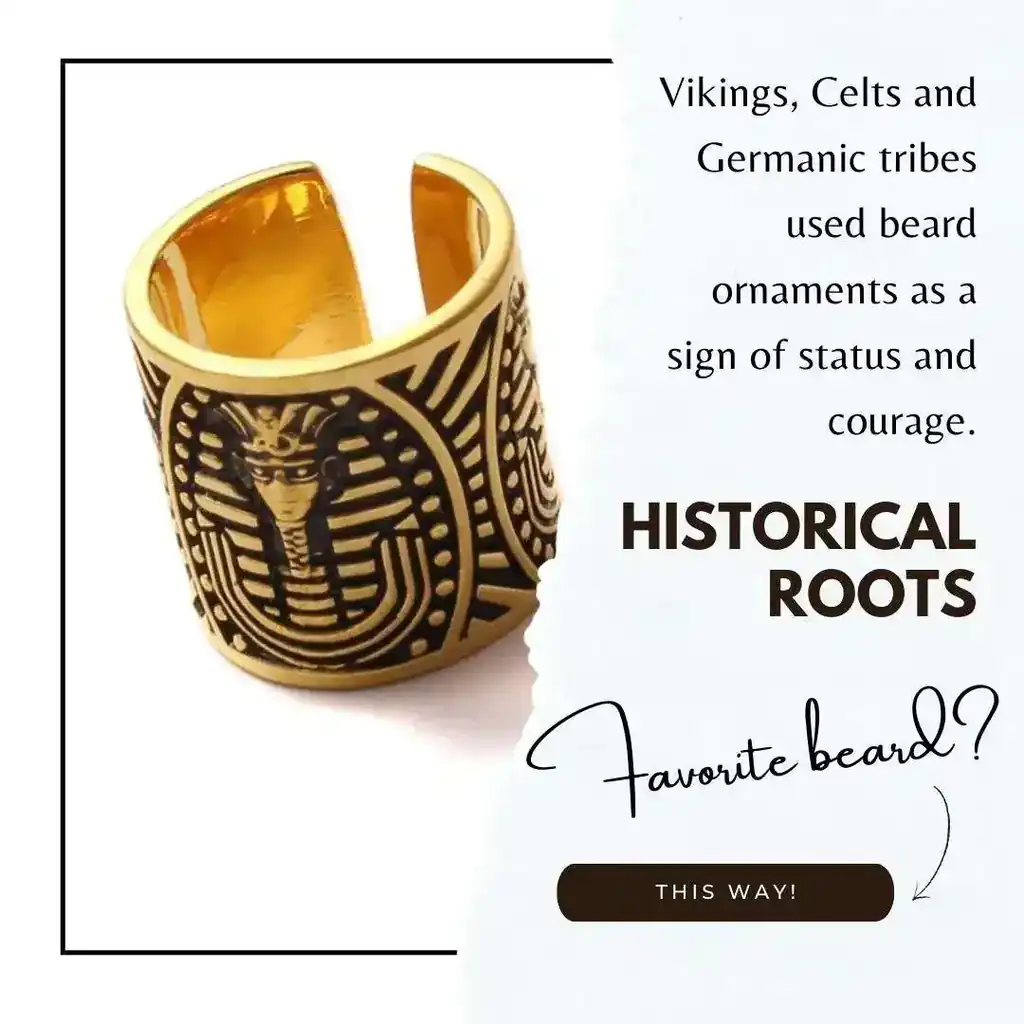 Beard beads have a long and fascinating history that is deeply rooted in the cultures of the Vikings, Celts and Germanic tribes. Even in ancient times, men adorned their beards with beads to express status, affiliation and personal beliefs. This tradition has evolved over the centuries and is experiencing a stylish renaissance today. Today, the meaningful beard ornament has become cult jewelry that has become an integral part of modern beard trends.
Beard beads have a long and fascinating history that is deeply rooted in the cultures of the Vikings, Celts and Germanic tribes. Even in ancient times, men adorned their beards with beads to express status, affiliation and personal beliefs. This tradition has evolved over the centuries and is experiencing a stylish renaissance today. Today, the meaningful beard ornament has become cult jewelry that has become an integral part of modern beard trends.
Back to top
Beard pearls as a symbol of status and power
Archaeological finds in Viking graves and settlements prove that beard beads were already in use in the Viking Age. In Viking culture, beard beads were seen as a sign of wealth, power and prestige. They were made from various materials such as bronze, bone and occasionally silver. These beads were not only used as jewelry, but also as an expression of courage and social status.
What already expressed social values such as honor among the Vikings still demonstrates values such as individuality and style today.
Runes and engravings as spiritual messages
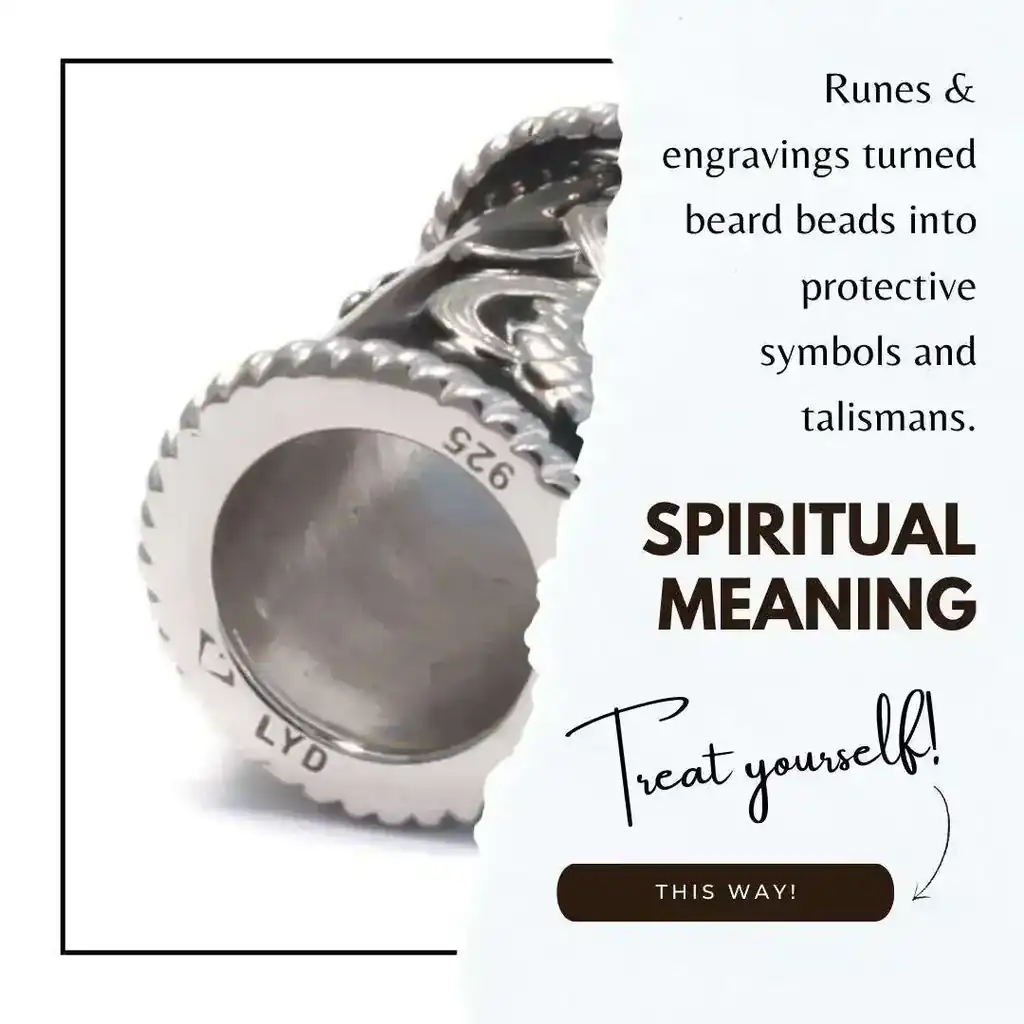 Beard beads also played an important role among the Celts and Germanic tribes. They were often engraved with symbols – especially runes. These were regarded as protective symbols, so the beard beads became ritual talismans or tribal symbols. The Celts and Germanic tribes wore them as messages to gods and ancestors.
Beard beads also played an important role among the Celts and Germanic tribes. They were often engraved with symbols – especially runes. These were regarded as protective symbols, so the beard beads became ritual talismans or tribal symbols. The Celts and Germanic tribes wore them as messages to gods and ancestors.
A beard bead engraved with runes was therefore much more than just decoration. It had spiritual significance. This also gives modern beard beads with similar symbolism a special charm.
The beard as an expression of masculinity and identity
In many ancient cultures – such as the Germanic tribes – the beard was revered as a symbol of wisdom, maturity and masculinity. Those who groomed their beard and adorned it with beads showed honor and discipline.
This connection between outward appearance and inner values can be wonderfully transferred to the modern lifestyle, turning beard care into a ritual with historical depth.
Back to top
Craftsmanship and individuality
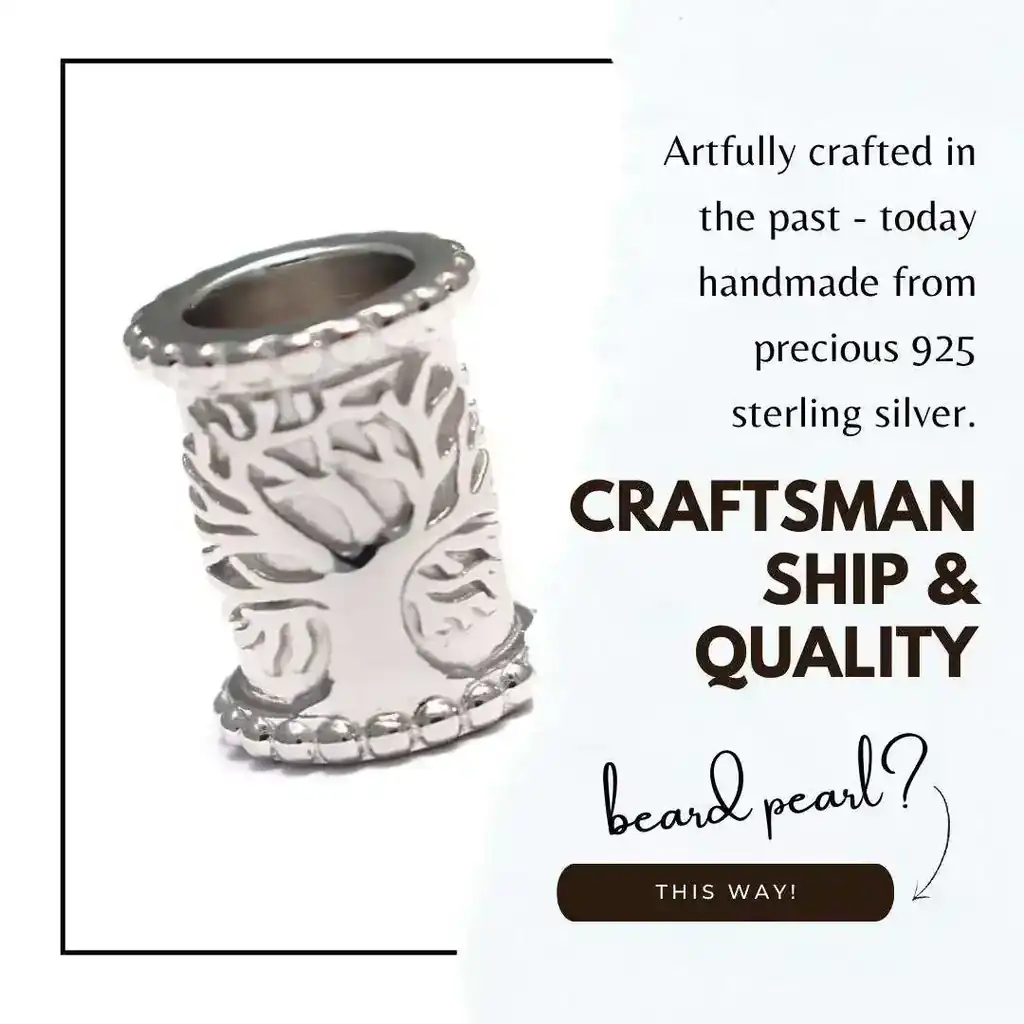 The specialist literature shows how carefully and artistically many historical beard beads were crafted – often by hand with fine engravings, filigree patterns or inset stones. This craftsmanship fits in perfectly with today's desire for individuality and quality. Silver in particular was a sought-after material, as it was both precious and easy to work with.
The specialist literature shows how carefully and artistically many historical beard beads were crafted – often by hand with fine engravings, filigree patterns or inset stones. This craftsmanship fits in perfectly with today's desire for individuality and quality. Silver in particular was a sought-after material, as it was both precious and easy to work with.
From warrior to rock star – the modern renaissance
The rediscovery of beard jewelry in subcultures is also interesting: from metal fans and medieval role-players to modern hipsters - beard beads have made the leap from the past. Beard beads are making a stylish comeback with each individual wearer group, combining historical significance with a modern sense of style. The parallel to the function of the beard as an expression of belonging or rebellion builds a bridge between past and present. Beard beads are not just a fashion accessory, but also an expression of individuality and cultural affinity.
Conclusion: Beard beads – more than just jewelry
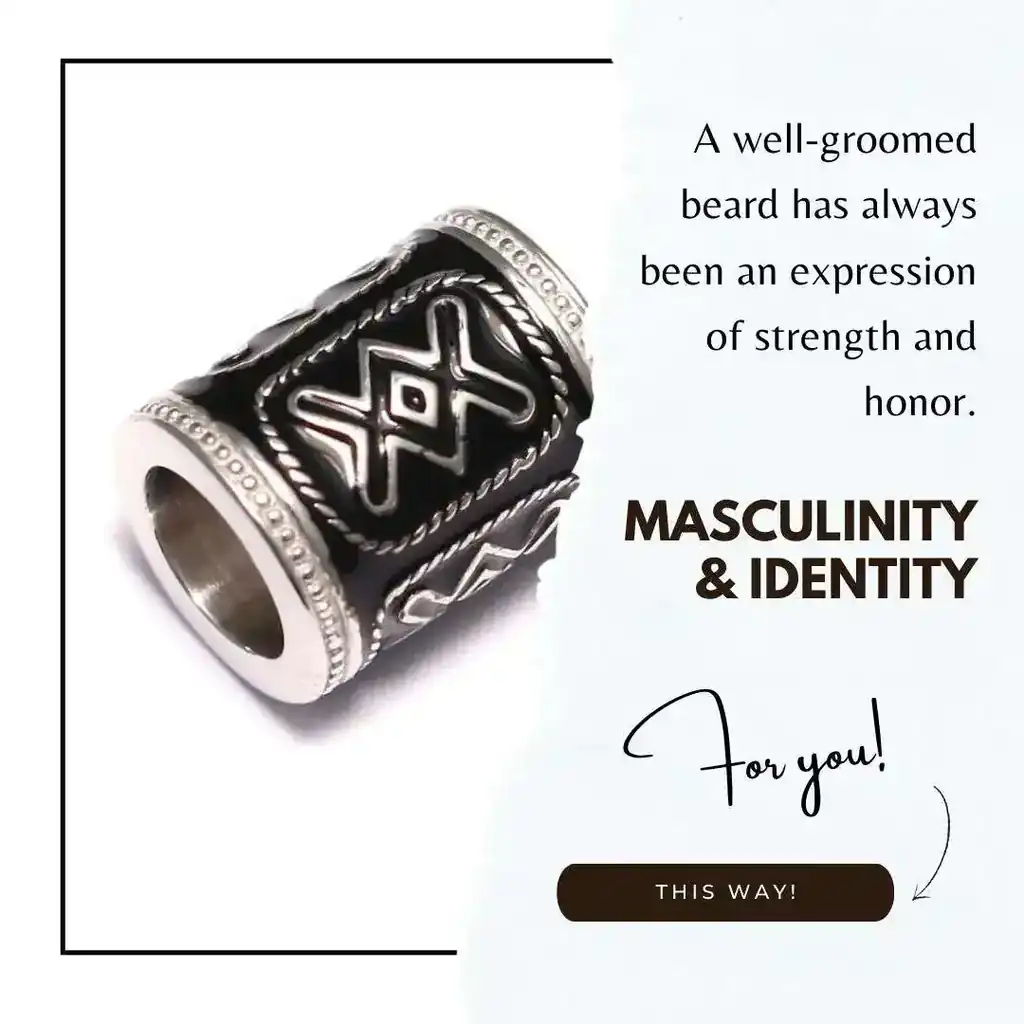 Beard beads are a symbol of individuality, style and cultural depth. They combine tradition and modernity and offer beard wearers a special way to express their personality. Those who decorate their beard with care not only show a sense of fashion, but also a connection to history.
Beard beads are a symbol of individuality, style and cultural depth. They combine tradition and modernity and offer beard wearers a special way to express their personality. Those who decorate their beard with care not only show a sense of fashion, but also a connection to history.
Back to top
FAQ – Frequently asked questions about beard beads
What are beard pearls?
Beard beads are small decorative elements that are woven or pushed into the beard. They originate from ancient cultures such as the Vikings or Celts and are used today as a fashion accessory.
How do you attach beads correctly?
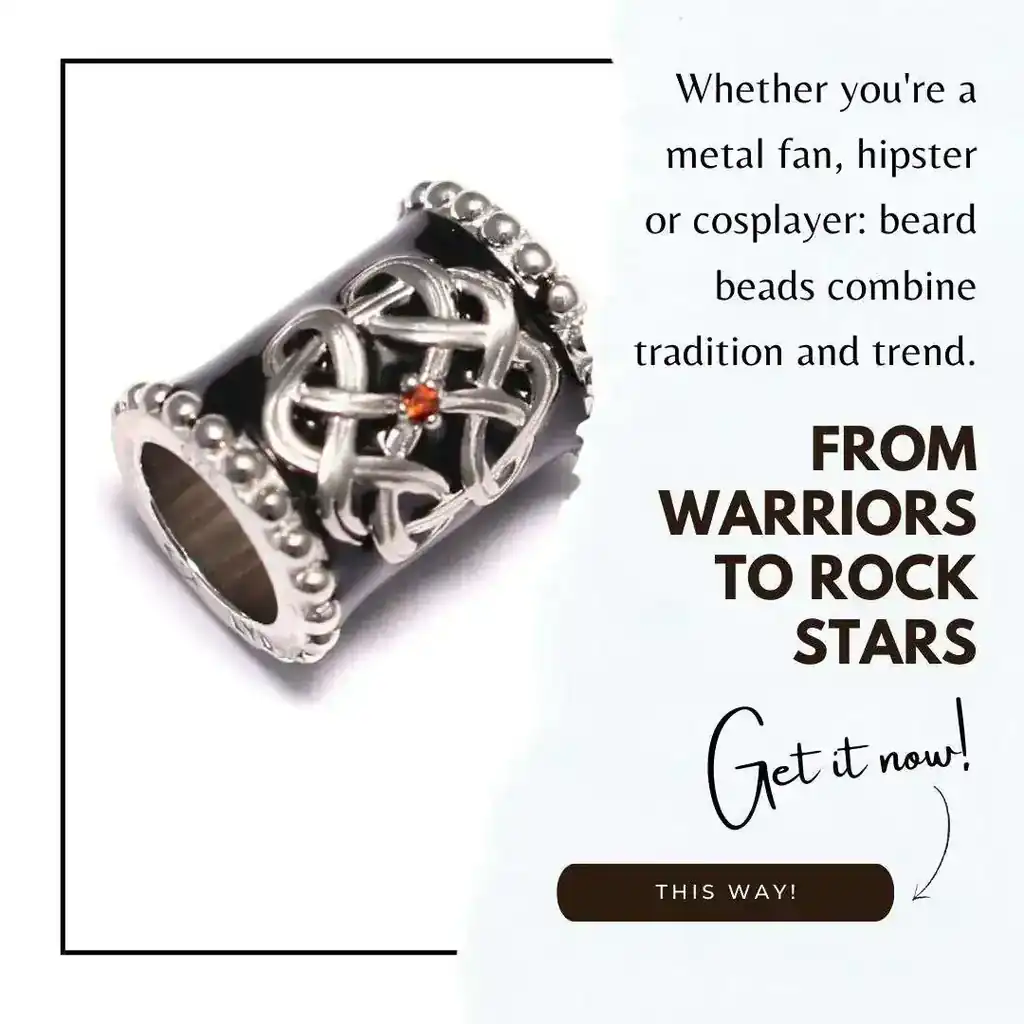 The beads are pushed onto individual strands of the beard, which can also be braided. If necessary, small silicone rings or hair elastics help to hold the beads in place to prevent them from slipping. You can find comprehensive instructions on how to apply beard beads in our blog article:
The beads are pushed onto individual strands of the beard, which can also be braided. If necessary, small silicone rings or hair elastics help to hold the beads in place to prevent them from slipping. You can find comprehensive instructions on how to apply beard beads in our blog article:
How do I put on beard pearls?
What is the significance of beard pearls?
Historically, beard beads symbolized status, courage or membership of a tribe. Many models bear runes or engravings with spiritual meaning. Even today, they stand for individuality and a sense of style.
What materials are beard beads made of?
Beard beads were traditionally made from bronze, bone or silver. Modern versions are made of stainless steel, wood, horn, copper or precious 925 sterling silver – often handmade and decorated.
You can read here why you should attach particular importance to sustainable materials for your beard jewelry:
Sustainable jewelry: ethics, elegance and responsibility combined
Are beard beads only for Viking fans?
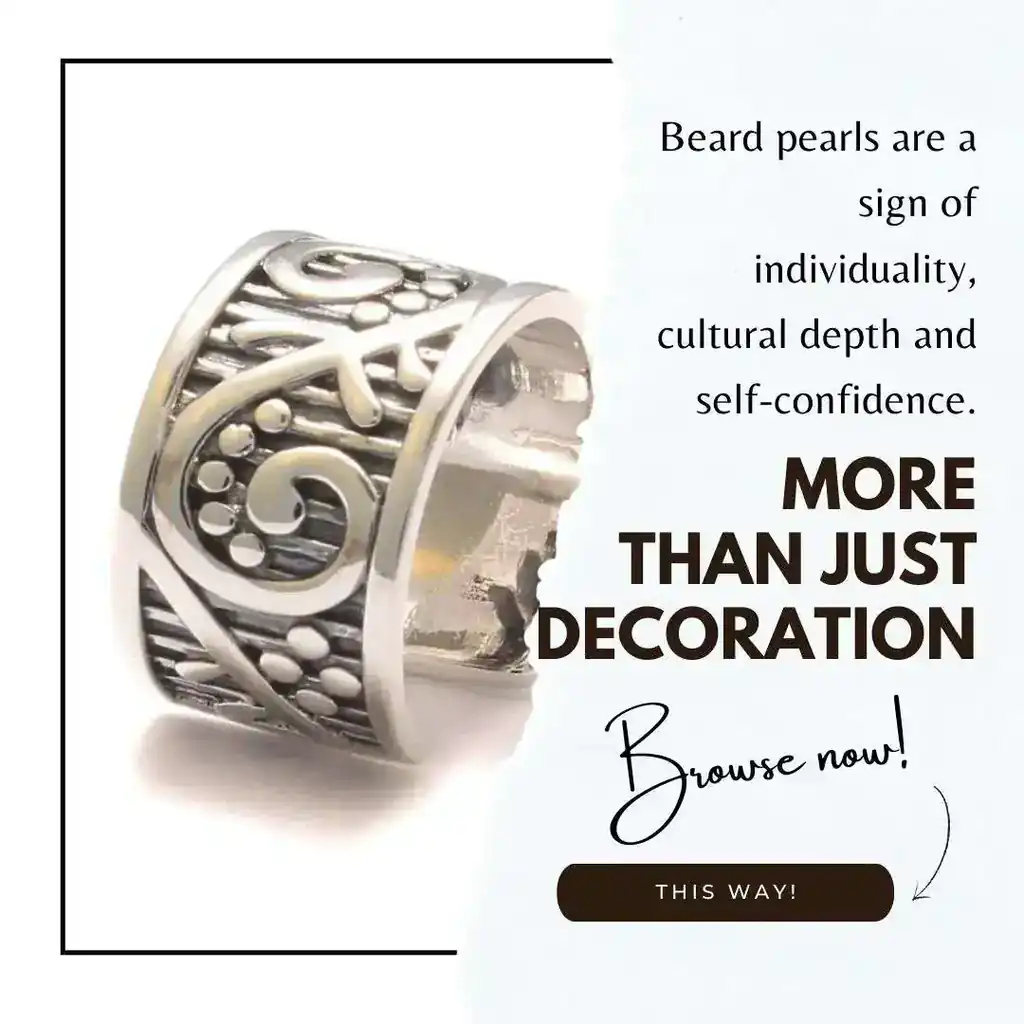 No, beard beads are now worn by a wide variety of style groups - from metal fans and retro hipsters to classic beard wearers with a sense of style. They can be combined in a variety of ways and suit many looks.
No, beard beads are now worn by a wide variety of style groups - from metal fans and retro hipsters to classic beard wearers with a sense of style. They can be combined in a variety of ways and suit many looks.
Can I wear beard pearls even with a short beard?
It is more difficult to attach beads to a very short beard. From a beard length of around 4–5 cm, smaller beads can be used without any problems. Braided sections offer better hold.
How do I care for my beard with beard beads?
Beard beads should be removed before washing. After cleaning, the beard can be groomed and restyled as usual. Regular beard care with oil and a comb maintains structure and shine.
Back to top